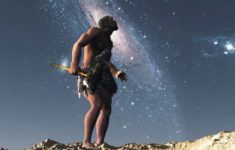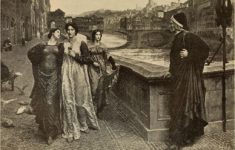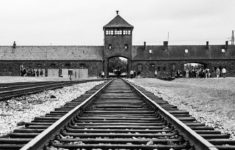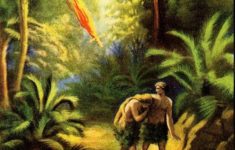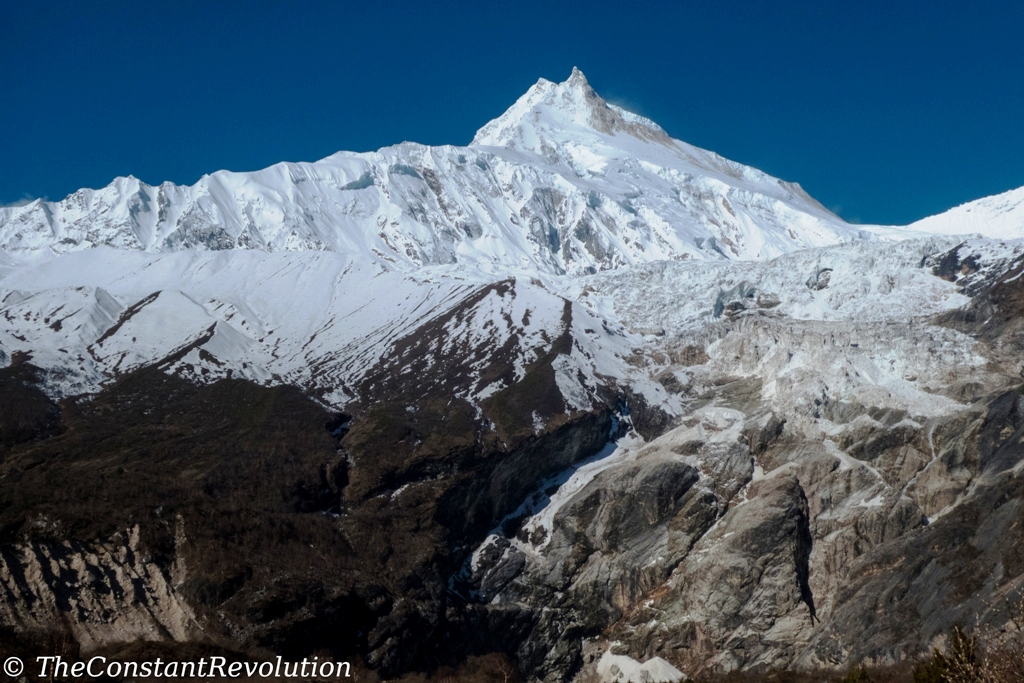There’s nothing like reading a good book when travelling, and I take pride on my book choices, so in this post I provide the list of the about 40 books I read during my long journey in Asia, and a short (or not) review for each of them. Yep, 40 reviews in one go, how about that?
My 18 months journey throughout Asia has been for the biggest part a solo adventure. Sure, I’ve met many nice people, to whom I’ve dedicated a post already, and I’ve often spent a few days in the company of fellow travellers. However, most of the time I was on my own, especially when moving from a place to another.
Let me tell you when you are crossing the entire Asian continent via land, moving from a place to another requires a lot of time. For example on the Trans-Siberian railway, which as romantic as it may sound, it is also a very slow train sliding through the never-ending, never-changing Russian taiga in sections of one or two days at a time, and inhabited exclusively by Russians “niet English” crowds.
Or, when you have to spend 24 hours on a pre-war bus to cross the whole of Kazakhstan with an old lady throwing random food at you as the only temporary hobby, niet speak English provided, refusing food not included. Or again, when you are on a freight ferry for three days to cross the Caspian Sea; when you are waiting at borders, at stations…
Long story short, there’s a lot of downtimes when travelling. This is a perfect occasion to reflect upon the mysteries of the universe the future of humanity and how we fit into the great design of all things, one might think. Yeah, it sure is. Ooor, it’s also a great occasion to read a good book, perhaps that classic you never found the time to read, or that 2,000 pages tome on the history of geology you always craved to put your eyes on.
Well, it so happens that I love reading, and I read quite some books during this 18 months journey. Not as many as I wanted to, I have been busy doing all sort of traveller stuff too (😏), but I kind of take pride in my book choices. I just read good books. Isn’t that another way of reflecting upon the mysteries of the universe etc etc anyway? Sometimes I also write reviews, in case you hadn’t noticed. Some of them are just mental, I guess, but that’s how it is. I also collect some quotes on this blog, in case you hadn’t noticed.
So, since I don’t want to write a review for every book, hereunder I’ll just provide a list of most books I read while travelling, I’ll spare you the mistakes, with just a short sentence (or two, or more) as a comment, in the hope the few people who will stumble upon this post will be somehow inspired to read one of these books. It’s my personal mission to spread culture worldwide 💪
Usually, my posts are 500 words top, which means that at this point it should end, and it does end, this is not cheating, the list is like an annexe, a really long annexe, completely outside the realm self-imposed rules. So, let’s go.
LIST OF BOOKS I READ DURING MY JOURNEY IN ASIA
I’ll divide this list in World Narrative, Italian Narrative, Theatre Plays, and Essays, just to make it a little bit easier to skim through it.
World Narrative
⊕ The Master and Margarita, and Heart of a Dog: two novels by Mikhail Bulgakov ♥♥♥♥♥
I loved The Master and Margarita so much that I had to write a separate review about it, follow the link if you are curious. As for Heart of a Dog, although not as good as the above mentioned, it is another satirical, dark allegory of Soviet times. It’s about a dog somehow transformed, through the genius of a professor, in a sort of man, well, more of a walking and talking dog with a man consciousness. A nasty one at that.
Bulgakov really pushed his luck, and if it wasn’t for the highly allegorical style, perhaps he would have not survived his ideas. Even so, his works were forbidden or censored for a long time and then published either just before or after his death. But he made it, his books are classics, and his name will go down in history along with the other great Russian writers.
⊕ The House of the Spirits by Isabel Allende ♥♥♥♥♥
I have rarely been moved by a novel as much as I have been moved by The House of the Spirits. Allende’s vivid prose resonates with my soul, I have devoured this book. It’s the dramatic story of the Trueba family, a four generations saga, through an era of political turmoil that leads up to the military dictatorship in Chile.
Sagas aren’t new as such in South American literature. The comparison with A Hundred Years of Solitude comes spontaneously. But I found Allende’s writing much fresher and captivating, and the characters more interesting, with that continuous intertwining the political with the personal.
However, Allende’s special touch is to be found in the very foundation of the saga. That is the marriage between ambitious, paternalistic and conservative Stephan Trueba with Clara, a woman that dedicates herself to the esoteric arts, and to helping others. Like a collision of astral forces with opposite strengths, this union is the beginning and the end of everything, it is the dramatic fate of the country and the underlying love of its people.
In a way, the House of the Spirits is a historical book, as it ends up drawing a fresco of how a whole society falls into tyranny. In another way, it is a family story, a proper saga with all its intricacies. And in yet another way, it is a mystical book, where the forces of the livings and of the deaths play on the eternal canvas of human things.
⊕ Slaughterhouse-Five by Kurt Vonnegut ♥♥♥♥♥
It’s very hard to explain what it means to read a book by Kurt Vonnegut. It’s an all-round experience that makes you laugh, think, suffer and leave this Earth for a while. He’s certainly one of the most eccentric writers of the 20th century, perhaps not always easy to follow. He reminds me of Italian postmodern writer Italo Calvino in many ways, a comparison that would be interesting to study in details.
Slaughterhouse-five is Vonnegut most famous work, a story imbued with poignant moments as well as Vonnegut typical dark satire, and it is about a memory, and how a man tries to cope with it. But it isn’t a memory fixed in space and time, it is fragmented, it fluctuates freely in and out of dreams, back and forth a quadridimensional puzzle. That’s the only way Billy Pilgrim can handle the horror that he had to witness and try to give meaning to his broken life. Him, and all of us. It’s the memory of the shameful firebombing of Dresden, right at the end of the Second World War.
⊕ The Brothers Karamazov by Fyodor Dostoyevsky ♥♥♥♥♥
Bulgakov, in a passage of The Master and Margarita (see above), makes the devil himself say that Dostoyevsky is immortal. Then Vonnegut, in a passage of Slaughterhouse-Five (also see above) makes one of the characters say that everything there is to know about life is in The Brother Karamazov. Bulgakov and Vonnegut were right.
⊕ The White Tiger by Aravind Adiga ♥♥♥♥
How can you go from the lowest caste in New Delhi’s India, condemned to spend a lifetime in a “rooster cage” made of menial jobs, to becoming an entrepreneur in Bangalore? The answer is in this book, and it might be a much darker path than you expect. I found the founding idea of this book to connect with Dostoyevsky masterpiece Crime and Punishment. It sounds far fetched, I know, but if you feel like giving me some credit, you can check out this separate review.
⊕ Doctor Zhivago by Boris Pasternak ♥♥♥♥♥
Did I say already that I love Russian literature? This epic novel about the struggling life of a physician and poet before, during and after the Bolshevik revolution is staggering, poetic, brutal, poignant, enlightening … it has everything one demands of a timeless masterpiece, including the impossible ways of love, a Russian love of course. Pasternak might well be the Hemingway of the Eastern hemisphere, and this book rightly earned him a Nobel prize.
⊕ The Notebook, The Proof, The Third Lie: Three Novels by Agota Kristof ♥♥♥♥♥
Isn’t it great when you try an author you didn’t know, and it turns out to be brilliant? The trilogy of Agota Kristof about the fate of two twin brothers at the time of the wall that divided Europe is first of all surprising, with a post-modern style that flows in and out the consciousness of the main characters. But it is also painful, and somewhat disturbing while it explores the nature of the trauma that the continent suffered for more than four decades. A must-read!
⊕ The Gospel According to Jesus Christ by José Saramago ♥♥♥♥
I guess I am saying this a lot in this long list of book reviews, but Nobel laureate Saramago is yet another favourite writer of mine. On the other hand, I said I take pride in my book choices. When it comes to Saramago I would start with his masterpiece “Blindness”, but anything that cames out of his magic pen is unforgettable. Saramago’s prose is powerful, rich of sarcasm, and almost deprived of punctuation, which obliges the reader to never take the eyes away and to understand emotions on his own, especially in the presence of dialogues. I love this.
In this book he retraces the story of Jesus Christ (and his (big) family) in between dark humour and psychology, resulting in very human rendering of his life. It’s a fearless work, a new vision on the dawn of Christianity that sparked huge debates among institutions with accusations of anti-religious sentiments and threats of censorship, of course. But in the end, there’s nothing anti-christian in this book. On the contrary, I’d have loved it if the whole religion, and the culture that derived from it, my culture, would have been built around the Christ we get to know in this story. We’d live in a better world.
⊕ The Death of Ivan Ilych by Leo Tolstoy ♥♥♥
Tolstoy certainly wrote great masterpieces, and I love Russian literature, I really do, and the prose of this booklet is just so vivid… that’s probably the problem, because the story is about exactly what it says in the title, and, well… the thoughts of Ivan Ilych are at the same time vivid and depressing. Perhaps better read Anna Karenina 🤔
⊕ Man Without Women by Haruki Murakami ♥♥♥♥
A collection of short stories narrated with the usual Murakami’s mastery for the mysterious ways of human emotions, enriched by his taste for fantastic settings and refined references. It goes without saying, the overarching theme is relations between man and women, always soaked in nostalgia, silence, and an existential curiosity which unfolds at a pace detached by reality, and perhaps, for this reason, the most real thing of all.
⊕ On the Road by Jack Kerouac ♥♥♥ vs The Road by Jack London ♥♥♥♥
I understand why Kerouac’s book is considered important, the new fresco it provides of a whole country, the light it sheds over a post-war generation that lost sense of purpose, even hopes for a better future, or the will to build one. Yet, I wasn’t captivated by his writing style or insights as he narrated his purposeless wanderings from coast to coast, nor I could relate in any way to the book. In this sense, it’s that kind of book that is meaningful for a generation, but perhaps it stops there, just like the whole Beat movement.
On the contrary, Jack London’s book The Road, which also tells the story of his young self exploring the whole country by trying to catch free train rides along with many other penniless vagabonds, has a taste of adventure, exploration and above all choice. Besides the usual insightful style – London is one of my favourite writers ever – there is a perceived sense of purpose in his wanderings, at the very least a latent curiosity. At the human level, I can always relate to that adventure, and for this reason, although not one of London’s masterpiece, this story is more interesting than Kerouac’s.
Funnily, it seems that Kerouac was inspired by London for his career. I guess such different outlooks on life and the resulting observations of society might have been, at least partially, dictated by the antithetic times they lived in. Kerouac wrote after the two biggest tragedies in human history, at the beginning of the cold war, in a time with little room for new ideas, participation, or change. London was writing at the beginning of the 20th century, with much-generalized enthusiasm for new ideas in science, philosophy and politics, and a wish to participate or even contribute to a change in public life.
⊕ Nine Man-Eaters and One Rogue by Kenneth Anderson ♥♥♥♥
A must-read for wildlife lovers, these are fascinating, breath-taking, and highly educational real-life stories of an English colonist hunting down man-eating tigers and leopards in India, at a time the jungles of the sub-continent were still vast and full of life. Through his stories Anderson explains the reasons these animals might turn into man-eaters, and how to understand their behaviour. It is even more captivating if, like me, you read it while living close to a big jungle where tigers and leopards live. One thing is for sure: that man had huge cocones!
⊕ Siddharta by Hermann Hesse ♥♥♥♥
Hesse is maybe my first literary love and this is one of those books that everyone reads in his teenage years, so I decided to read it again while in India. Funnily, I found it much shorter than I remembered, much simpler, but no less insightful. I really believe anyone, no matter the age or the life experience, can relate to the spiritual quest of Siddharta to find meaning in life to an extent or another. Hesse’s wonderful prose makes it also a pleasure to read, or re-read.
⊕ Michael Strogoff, The Castle of the Carpathians, The Mutinied of Bounty, three adventures by Jules Verne ♥♥♥
Alright, Verne needs no presentation, he is the father of all adventures in literature, and such a prolific writer. There are dozens of books written by him, many incredibly famous, more than the three I read. Yet, the plots are normally quite straightforward and simple for all of them, it’s simple literature, pure entertainment. So, there isn’t much to say about it. If you are in the mood for adventure, any of these books will do. I just would like to highlight how great it was to read Micheal Strogoff while travelling through Siberia on the Trans-Siberian Train. Just the perfect story in the perfect setting.
⊕ Orlando by Virginia Wolf ♥♥♥♥
Orlando is a young nobleman in Elisabeth’s England who ends up living for three centuries and changing sex in the process. Yes, he becomes a woman, just like that. He goes to sleep one night in Constantinople, and (s)he wakes up a woman. She also bears child at one point, and falls in love in both man and women clothes, which is very interesting in terms of how the sentiments are processed.
Said like this the novel might sound a tad too weird to enjoy, but it is not the case at all. Wolf’s clean writing is so charged with sensuality, playfulness and poetry, that the reader ends up completely involved in the hero(ine) life, and entertained by it. Finally, with some thinking (and some reading online in my case), the reader might even find some hidden meanings: from the author private life to a clever stand in favour of feminism.
Italian Narrative
⊕ Letter to a Child Never Born by Oriana Fallaci ♥♥♥♥♥
A moving monologue of a mother towards his child never born. But it isn’t just a mother that speaks, it is also a woman in a world dominated by man, a journalist in the midst of her career, and the most intellectually honest writer I have ever had the pleasure to read. This rendering of a tear of real-life raises many important questions about life, relations, and motherhood, and leaves room to everyone to find his own answer.
⊕ If on a Winter’s Night a Traveler by Italo Calvino ♥♥♥♥
This is one of the weirdest books I have ever read, even by Calvino standards, but also one of the funniest and an insightful post-modern literary experience. It’s Calvino after all. The story is about a man that tries to read a novel called “If on a winter’s night a traveler” (so, is it about us?), just like the woman he meets in a library whom he falls in love with, only to discover that the book he is reading does not end, and it’s not the real book anyway, maybe, and so he goes looking for the real one, which has another title, and another plot, and it doesn’t end, and so on and on in an puzzly circle with a taste of transnational conspiracy about the meaning of reading and writing. Does that make sense? Perhaps not, I am not sure it’s supposed to. But the book is great, although I wouldn’t recommend it to those in need of closure.
⊕ XY by Sandro Veronesi ♥♥♥♥
It’s weird, but reading this book is kind of satisfying, although not much happens. I mean, at the beginning of the story some real crazy shit goes down, a big mystery with a taste of mystical forces involved. After that, basically the plot plays out in the heads of the two main characters: a priest and a psychologist (a woman, is important to highlight for the story). Indeed, I would call this book a false thriller, while instead is a psychological novel, almost an experiment, research into the realm of the human psyche, all based on the concept of Negative Capability.
This is an idea based on twentieth-century British psychoanalyst Wilfred Bion, who defined negative capability as the ability to tolerate the pain and confusion of not knowing, rather than imposing ready-made or omnipotent certainties upon an ambiguous situation or emotional challenge. Fascinating concept, elaborated in a fascinating way in the novel by Veronesi. However, that’s all there is to it. If you don’t enjoy this kind of tortuous reasoning, then perhaps this is not a book for you.
⊕ Anna by Niccolò Ammaniti ♥♥♥♥
Anna is a young girl who lives in a dystopian future in Sicily with her younger brother. In this reality, a virus has killed all adults, only children have survived and keep on living in a post-apocalyptic scenario. However, they are not safe, the virus becomes active with the reaching of puberty. A sensible story about the strength of survival instinct, and that gives rise to some interesting questions. What if our lives were shorter, say, like that of an average dog?
⊕ The Breaking of a Wave by Fabio Genovesi ♥♥♥
This is a book I read in my attempt to read more contemporary, and Italian, literature. I am quite happy I did. The story is about coping with loss, chasing unrealized dreams, and growing as a person. The prose isn’t particularly memorable, but it is sensitive, with some touching moments and chunky doses of humour.
Genovesi came up with a series of improbable but well-defined characters. Luna is an albino young girl living with her single mother, a beautiful woman completely focused on her two kids. Sandro is a typical Italian middle-aged, unfulfilled man still struggling to create a life for himself. Eccentric Zot is a child from Chernobyl who ends up living with a funny, very Tuscan grandpa. All in all, I enjoyed it for lighter reading.
⊕ Agosto moglie mia non ti conosco by Achille Campanile (no English translation found) ♥♥♥
I am normally not a big fan of old-style comedies, you know the kind of quid pro quo, silly play on words kind of situations. At times I am even annoyed by it, unless the mastery of the author is such to make me forget about the silliness and plunge into the story. Campanile is one of those rare authors. His surreal settings and characters are kind of classic, and the rhythm isn’t always at full speed, but his work on the text is excellent. That makes all the difference. Not only he makes you laugh heartily, but it often naturally flows into poetry and ends up pushing some real-life reflections onto you, even when he plays with simple cliches. A really pleasant discovery of an early 20th-century Italian author that I did not previously know.
Scripts and Theatre Plays
⊕ Otello, and Macbeth by William Shakspeare ♥♥♥♥♥
When I travel I carry an e-book reader with me, which means I can carry hundreds of books in just a 180 gr. screen, which means I can carry the whole collection of Shakspeare plays, which means from time to time I read one, not because I haven’t read/seen them before, but because every time I tackle one of Shakspeare plays I deepen my understanding of, well, humanity, in every possible sense. There is no such thing as reading too much Shakespeare.
⊕ Oedipus Rex by Sophocles ♥♥♥♥♥
The cursed child (for real, Harry Potter is a beginner in comparison), destined to kill his father and marry his mother, Oedipus’s story is perhaps the ultimate Greek tragedy. It is often known because of Freud’s theory, the Oedipal Complex, which it has inspired. Indeed, it has inspired writers, poets, philosophers and cinematographers for millennia. After all, fate, justice, freedom, the quest for happiness, and the eternal matter of who we are in this world, are issues not to be taken lightly.
⊕ La morte della Pizia by Friedrich Dürrenmatt ♥♥♥♥
I couldn’t find an English translation for the title of this brilliant and hilarious short story by Swiss play writer and author Dürrenmatt, it’s probably part of a collection. The story is about the last days of a Pizia, an old woman working as the Delphi’s Oracle in ancient Greece, who can’t believe herself the gullibleness of the people that ask her for prophecies. The centrepiece of the narration is, guess what, when Oedipus shows up asking to know who his parents are (see above). Annoyed by this new request, Pizia, who can’t find her rest in this show biz like job, comes up with an impossible prophecy. What happens next, not even Sophocles could imagine.
⊕ Cyrano de Bergerac by Edmond Rostand ♥♥♥♥♥
Oh, where to start. Cyrano is by far my favourite hero. I read this book and seen the play in theatres and watched the movie with Gerard Depardieu countless times, and it never ceases to move me in many different ways. Really, it gives me shivers, it makes me cry, it puts me in a state of permanent awe for the hero, and for Rostand.
The play is beautifully written in verses and rhymes and tells the story of a Gascon cadet in 1600s French army. Cyrano is the bravest and strongest duelist, an inspired and joyful poet, an irreverent enemy and a just friend, above all, he loves his panache, the plume that symbolizes his free will. The “No Thanks” monologue, where he explains why he is not accepting a protector, is just a kick in the teeth of all hypocrites of all time.
But this is a drama, after all. Cyrano has everything a man might desire, but for love. That huge nose he carries around prevents him from expressing his true feelings to beautiful Roxane, and boy he knows how to express them. So, rather than keeping them inside, he ends up lending them to Christian, the cadet Roxane longs for, who has the looks but ignores of the ways of the words, in particular with women.
If you have never seen or read this play, then you are missing out! Hurry!
⊕ Rosencrantz and Guildenstern Are Dead by Tom Stoppard ♥♥♥♥
Completely absurd, totally funny, absolutely brilliant! The last conversation of two minor characters in Shakespeare’s Hamlet, somehow bewildered by their own roles, and destinies.
⊕ Harry Potter and the Cursed Child: Parts One and Two by John Tiffany (Adaptation), Jack Thorne, J.K. Rowling ♥♥♥
If you have read all the Harry Potter books as I did, watched all the movies, and missed out the theatre play based on this script, then you are going to enjoy this, and finally get a sense of closure… or not.
Essays
⊕ Hölderlin, Kleist, and Nietzsche: The Struggle with the Daemon by Stefan Zweig ♥♥♥♥
Zweig is one of my favourite writers, but he is perhaps an even greater biographer. Reading his essays is a real pleasure, he manages to tell a story so cleverly and with such clarity, and he conveys all his passion for the great minds and poets that walked this world before him. Passion is the keyword for Zweig, as he explains how an uncontrollable force, an ever burning flame propelled the lives of Hölderlin, Kleist, and Nietzsche and at the same time consumed their souls. A fascinating account of the daemon that connected their geniuses.
⊕ How the World Thinks: A Global History of Philosophy by Julian Baggini ♥♥♥
An interesting, well-motivated, and perhaps one of the first attempts at finding common grounds between different philosophical traditions in the world. It is an intense book, not much for the style as much as for the sheer number of cues it contains. This is at the same time a merit and a shortcoming: so much to think about, so many quotes, so many ideas, so many references, some very curious, even enlightening, but taken all together it ends up in an inevitable shallow and somewhat confusing analysis, and conclusions.
⊕ The Conquest of Happiness ♥♥ and The History of Western Philosophy ♥♥♥♥ by Bertrand Russell
With this booklet, 1950s Nobel laureate in Literature tries to offer a recipe for happy living. The main issue I take with this essay is that Russels tackles the whole problem with a very logical approach, effectively ignoring all the nuances of human psyche, like emotions, sentiments and irrational behaviours, nor it takes into account culture, upbringing or any kind of externality as a factor that influences our approach to life, including how we find happiness.
It seems to me he firmly, or naively, believed his recipe imbued with mathematical logic could work on anyone. It’s a beautiful recipe too, exposed with much optimism. This is not surprising since he was one of the founders of analytic philosophy, and his intellectual achievements are certainly not in question here, just his effectiveness as a guru in providing life advises to anyone besides himself.
As for his History of Western Philosophy, obviously extremely interesting, but also a little too difficult for me too read. The main reason is my ignorance on the subject, and second, it might be that Russel’s approach is less that of a historian trying to explain stuff to beginners, and more that of a punctilious critic carrying out his analysis. So, I couldn’t always follow. I also had the feeling that some of his judgments on previous philosophers were strongly influenced by the two World Wars Russels went through in his life, and a strong bias towards liberal philosophies and against anything that might have fostered extreme nationalism, from Pluto to Nietzsche.
⊕ What the Buddha Taught by Walpola Rahula ♥♥♥♥
This is a very lucid and honest account of the teachings of the Buddha, and it so happens that what I have learned in this book fits in very well with what I have learned during my Vippassana meditation experience in India. So, if interested in the subject, highly recommended.
⊕ The Four Noble Truths by Dalai Lama ♥♥♥♥
What better way of learning Buddhist doctrine than from the Dalai Lama himself? This book collects the lessons he gave in London about the Four Noble Truths, on the occasion of his first visit to England. Other than being a wise man and a leader, the Dalai Lama is a very good teacher, and his exposition certainly helps understanding Buddhism.



